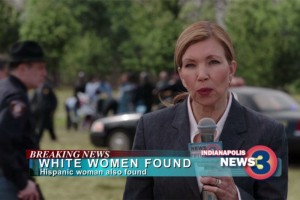I meant to write this all in response to Michael’s post. He asks whether or not we should:”…’fake it till we make it,'[…] or press the issue” in reference to racial oppression. I didn’t have quite enough space to fit my answer in the comment section so I’ve put my response into the post you see here.
This is a good question but unfortunately there’s no right answer. If we fake it, everyone knows it’s fake and won’t take it seriously. The only issues that film and television seemed to have pressed are outdated; they aren’t properly representing the Struggle. To be honest, unless we were to endow every single underrepresented person with the finances, filmmaking capacity, and audience they need (i.e. make everyone watch each filmmaker’s perspective), there is no indisputable way to properly portray the experience of an entire generation of a race of oppressed people.
Having recognized the impossibility, it’s important to recognize not which stories are being told, but instead to recognize which stories people are listening to. The major news conglomerates are churning out race-based stories daily and society is totally eating that stuff up. The only problem is that the news stations aren’t representing anyone when they tell their stories.
To reiterate the point, too many people rely on commercial film (i.e. blockbusters) to pick up society’s slack. The real problem is that the news media overplays the ultra-rare violent crimes perpetrated by whites against blacks, yet underplays the ubiquitous struggles that black Americans face. This is the norm because violence attracts viewers. And do you know what attracts a lot of viewers? Violence against the oppressed. While these acts of violence do happen from time to time, they are wholly a product of more deeply entrenched, deep-seated institutional problems. That is what the news needs to be reporting on! You may hear a lot about “the Struggle”. Well, the Struggle is real but it isn’t perpetuated through any fear of lynching by whites (which is what CNN and FOX might lead you to believe). The Struggle is part of the micro aggressions blacks face in their day-to-day lives.
From an outsider’s perspective, the black community needs a new Raisin in the Sun. In the play/film, a black family moves into Clybourne Park, which is a township that is just a single stop from the center of Chicago (if you take the Metra from Ogilvie). While Lorraine Hansberry’s novel does infer many verbal threats from whites, it mostly deals with a rich widow’s reaction to her family’s new “white” environment. With one potential suitor coaxing her into appeasing whites by becoming more vanilla and another potential suitor encouraging her to return to her African roots, the main character is literally facing the problems many African Americans encounter today.
We live in a day and age where the idea of burning crosses in a family’s front yard is so archaic that you wouldn’t even believe it if you saw it on the news; yet, at the same time there are communities that aren’t welcoming towards blacks that already live there. Many blacks must still choose between being educated “Uncle Toms” or being Malcolm X’s uppity “Field Negro”.
Fear of being gunned down by some redneck in broad daylight is not the Struggle black Americans face today. Not being welcome in your own town: that is the Struggle. Having to choose between being “eloquent” versus being “hood”: that is the Struggle. These are the stories that need to be told… but the news media keeps interrupting everything by injecting their own narrative. It’ll take a real effort for film and television (read: society) to correct the damage that the news media has done.

